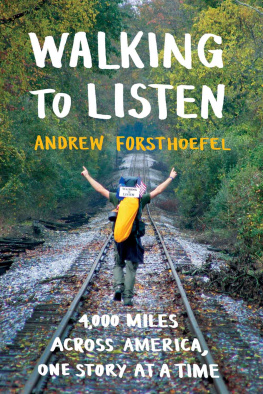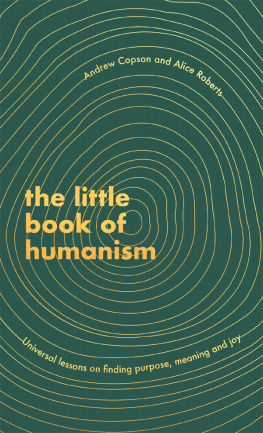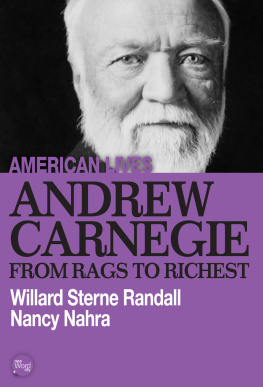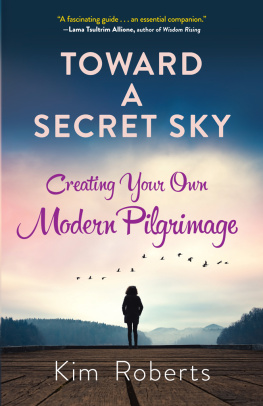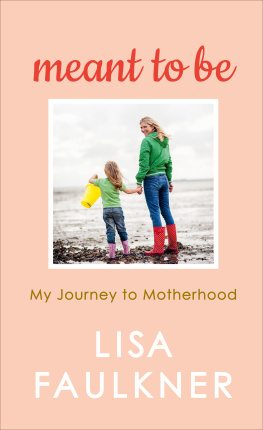CONTENTS
_____
Praise for
ONE LIFE TO GIVE
_____
Reading One Life to Give is truly a gift to oneselfa profound and riveting experience that kept me up into the late hours following a journey both immensely provocative and transformative. Andrew Bienkowski gives fully of himself in this book, with a power that brings forth a spirit of healing so important at this time in our world. Im already recommending this to everyone I know.
STEPHAN RECHTSCHAFFEN, MD, co-founder, Omega Institute and Blue Spirit Costa Rica
I was touched by this story of courage and sacrifice, blended with gems of wisdom reflecting the authors many years as a psychotherapist. I found myself highlighting many excellent points throughout its pages.
DAN MILLMAN, author of Way of the Peaceful Warrior
One Life to Give is a compelling and heartwarming saga that will inspire, uplift, and move you to appreciate your loved ones and consider what you can contribute rather than get. Andrew Bienkowski brings a lifetime of experience as a soulful therapist to his account, and for that I am deeply grateful. Anyone who values family, or feels disconnected from loved ones, would benefit immensely from this extraordinary book and the powerful, practical lessons it bestows.
ALAN COHEN, author of Lindens Last Life

BECAUSE EVERY BOOK IS A TEST OF NEW IDEAS
For DZIADEK, my grandfather, who gave his life for me, and in doing so, taught me how to live.
FOREWORD
by Gordon Livingston, MD
_____
WISDOM IS A hard-won virtue. What we make of the adversities with which life inevitably confronts us determines whether we have anything useful to say to those who follow us. Andrew Bienkowski passes the test with this extraordinary story of his childhood exile to Siberia and the lessons he learned there about loyalty, perseverance, gratitude, and love. That he was later able to convey these insights to others in a long career as a psychotherapist is a natural outcome of his conclusion that our obligation in life is to take what we have learned and pay it forward. This book reflects his determination to give permanent form to truths about living that come only with experience and reflection.
If he is correct that powerlessness is the disease of our times, then we must all consider our sources of strength and determination. What will sustain us as we search for the meaning of our lives? Absent a religious formula to guide us, what do we have that justifies our time on the planet and enables us to nourish optimism in the face of our mortality? The answer, Bienkowski suggests, lies in what we are able to give others: understanding, tolerance, faith, and that form of love that we call kindness.
The clinical vignettes that the author uses to describe how he has helped people struggle with their problems in living illuminate the power of empathic listening and the ability to be fully present with another person as they find sometimes surprising solutions that are wholly their own. What is required in these healing interactions is usually not some blinding insight, sage advice, or magical medication. Rather, we as therapists bear compassionate witness to exercises in courage and the rebirth of hope. It is useful in this process if the person seeking help senses that the putative helper has himself confronted adversity in his own life and drawn from it the lesson that it is not what happens to us that determines our futures, but how we respond.
As you read this book think about the Siberia that comes to each of us sooner or later. Our own trials most often take the form of rejection, loss, depression, illness, or, if we are lucky, the depredations of age. None of us is immune to adversity, and none of us gets out of here alive. It is what we do with these experiences that defines us as people and decides the outcome of our two great and intertwined searches for happiness and love. The profound message that this book contains is not new but deserves repeating: the last human freedom is the choice of how we confront our fates. May you meet your own with the grace and generosity with which this author and his family faced theirs.

GORDON LIVINGSTON, MD, a psychiatrist and writer, is the author of four booksOnly Spring: On Mourning the Death of My Son, And Never Stop Dancing: Thirty More True Things You Need to Know Now, How to Love, and the internationally bestselling Too Soon Old, Too Late Smart: Thirty True Things You Need to Know Now. He lives and works in Columbia, Maryland.
AUTHORS NOTES
_____
IVE ALWAYS HAD a great thirst for learning. And Ive always known that the most important lessons of my life were learned in Siberiathat my purpose and core philosophy were formed during that difficult time. Originally, my attempts to write this book focused on teaching the reader how to be more effective in helping otherspassing on my lifetime of skills to anyone who had an interest in helping his fellow man. That original version was more like a textbook or a manual. I quickly realized that a book like that would not interest many readers.
Although I did not want this book to be about me, Mary Akers helped me to see that my life story and professional experience would serve to dramatize the life lessons I longed to pass on to readers. However, I am not a writer and my stories from Siberia were like photographs as seen in black and white. What Mary did with her wonderful writing skills was to put color into those pictures. She brought the stories to life. Its been a delightful experience working with her, creating this book. When I look at our creation now, I realize that most of the credit should go to her.
Andrew Bienkowski
THE SIBERIAN STORIES included in this book represent the sort of family lore that gets passed down from generation to generation. Many of the accounts originated with Andrew Bienkowskis grandmother, Babcia, who understood the healing power of a good story well told and refused to let hers languish in the dark cave of memory. Babcias fierce determination to retell her experiences ensured that her grandchildren would remember their mother after her untimely death, that the sacrifices of their grandfather would continue to shape their lives, and that they would understand the evils that can beset ordinary, innocent citizens when governments exert too much power over ideology and individual will.
The stories from Siberia that did not originate with Babcia are based on the fractured memories of Andys own childhood experiences, as recalled by him and conveyed to me. Together we spent many hours poring over old family photographs, discussing the past, and reliving the events that helped his family survive their traumatic ordeal. As in any enterprise based solely on memory, there are bound to be discrepancies. But we believe we have portrayed the trials that his family faced with as much accuracy and fidelity as possible. Specific sensory details have been reimagined to enhance the readers experience, but the basic events depicted are unchanged.
While writing, I propped a photograph of Andys grandfather beside my computer. It was taken about a month before his death and is from an official Russian identification document. In it, his eyes stare out past the camera, past the Russian official photographing him, toward me, seventy years into the future. He is admonishing me to




